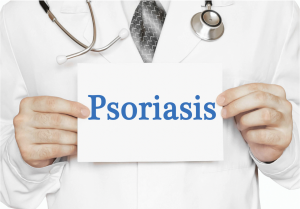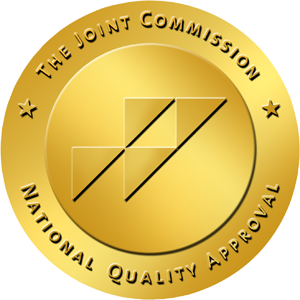Psoriasis: Symptoms, Treatment and Medications
 Psoriasis affects people of all walks of life and usually runs in families. According to the National Psoriasis Foundation®, symptoms often start between ages 15 and 25, but can start at any age. If you need help with managing psoriasis, Psoriasis Action Month designated in August, is a great time to establish or make necessary changes to a medication care plan.
Psoriasis affects people of all walks of life and usually runs in families. According to the National Psoriasis Foundation®, symptoms often start between ages 15 and 25, but can start at any age. If you need help with managing psoriasis, Psoriasis Action Month designated in August, is a great time to establish or make necessary changes to a medication care plan.
What Is Psoriasis?
The Journal of Psoriasis and Psoriatic Arthritis indicates that psoriasis is a immune-mediated disease (a disease with an unclear cause that is characterized by inflammation caused by dysfunction of the immune system) that causes inflammation in the body. The exact cause of psoriasis is unknown; however, genetics and the immune system both play a role.
Some people with psoriasis may also experience other health conditions or may develop psoriatic arthritis. Symptoms of psoriatic arthritis include swelling, stiffness and pain in the joints and areas surrounding the joints. Early detection and treatment of psoriatic arthritis helps avoid permanent joint damage.
Psoriasis is not contagious, but most patients have flares when something triggers it. Psoriasis triggers include cold weather, illness, injury to skin, stress and other suspected factors, which vary from person to person. Tracking symptoms and triggers over time can help anticipate and treat flares.
Locations and Types
Psoriasis can affect any area of the body. It appears on the face, genital area, palms of the hands, soles of the feet, thighs, scalp, and skin folds. There are five types of psoriasis:
- Erythrodermic psoriasis is a rare type of psoriasis characterized by bright red skin, severe itching and pain, and shedding of scales in sheets. It can be life-threatening and requires immediate medical treatment. Symptoms also include dehydration, changes in heart rate and temperature, and nail changes.
- Guttate psoriasis is characterized by small, round, red spots on the arms, legs, and torso caused by inflammation. However, it can affect any area of the body.
- Inverse psoriasis is characterized by bright red lesions that appear under the armpits and breasts, and on the groin area. Signs of inverse psoriasis include inflamed deep-red, smooth skin. It can cause severe itching and pain. Sweat and rubbing can worsen symptoms.
- Plaque psoriasis is the most common type. It is characterized by raised patches of inflamed, itchy, painful and scaly skin that may be red with silvery white scales or look purple. It usually affects the elbows, knees, scalp, knees, lower back, elbows, belly button area and scalp.
- Pustular psoriasis is characterized by red, scaly skin and tiny white, pus-filled, painful bumps (pustules) on the palms of the hands and/or feet. This type of psoriasis may also cover most of the body.
It is possible for someone to have more than one type of psoriasis at one time and more than one type in a lifetime.
Treatment
There is no cure for psoriasis. Treatments vary depending on the type and location of the psoriasis. A dermatologist may prescribe medications that are taken orally, by injection, or by infusion, for moderate-to-severe psoriasis.
Patients can fill prescribed medications for psoriasis at Carmichael’s Retail and Compounding Pharmacies. With a doctor’s prescription, our compounding pharmacists can also create individual dermatological treatments in the form of creams, lotions, and more to meet the specific needs of the individual patient.
We also have a selection of over-the-counter products that contain calamine, hydrocortisone, or antihistamines to relieve itching, as well as Gloves in a Bottle shielding lotion that helps protect the skin against allergens and irritants. Contact Carmichael’s Pharmacy at 337-783-7200 for information about our pharmacy services for optimal medication therapy management.




 Accredited/Certified by The Joint Commission
Accredited/Certified by The Joint Commission